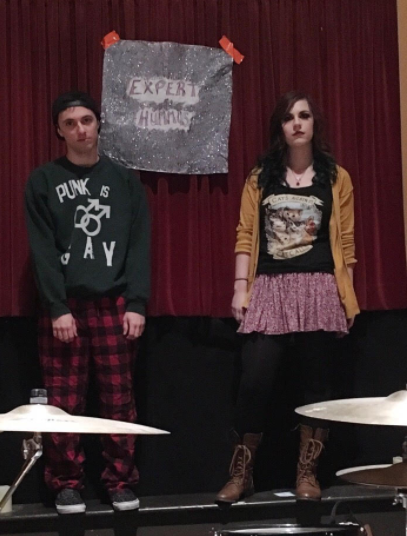Local Music Spotlight – Behind the Scenes of the Scene
Written By: Holly Martin
The Philadelphia music scene is like no other. Passion echoes from crowded basements filled with college kids watching their friends’ bands play their hearts out. Hustle radiates from the bass of an underground rapper’s backing track. Walking on a Friday night through parts of the city is met with muffled music, played in the houses hosting DIY acts and open mics.
Philadelphia is setting the standard for creativity. Literal sweat, blood, and tears go into the greatness of our cultural hub and those with a hand in its cultivation aren’t slowing down any time soon.
Temple University is home to an eclectic bunch of musicians, artists, and everything in between. The house shows, basement shows, and radio shows are fueled by the local artists who share their work with the city. To harvest this cultural hub, students with a wide variety of talents live to make the creativity flourish.
With an interest in what happens behind the scenes of this local music scene, I spoke with the host of WHIP’s The Basement Show, Britt Rizzo, to pick her brain about the local music scene and the greater music industry.
H: What about Philadelphia’s music scene interests you?
B: Everything. There are so many moving parts that go into this scene and these shows. Of course, you have the bands and musicians, but there are photographers, bookers, engineers, and promotions teams. There are so many talented people involved. And what interests me and inspires me the most is that no matter what medium people are using to create, the passion and love of music is undeniably there.
H: That’s great to hear. I like that you mention there are so many other people involved in getting these shows and music out. As someone who works behind the scenes, what part about Philadelphia’s music scene helps it stand out?
B: The support for music in Philadelphia is amazing. I spent the entire summer sorting through 400+ local albums in preparation for this semester of The Basement Show. I made a post in a DIY group asking for people to send along their music and half of the time, the music I was sent, was from a friend of the band. People who liked a band’s music sent me the band’s albums to play. Also, what helps the local music stand out totally goes back to what I was saying about the multiple moving parts. You can have a show at any house, but without the people passionate and supportive of the bands, whether it be as a photographer or blogger or whatever, it wouldn’t be as memorable.
H: So, the local music scene goes back to passion and support from everyone involved. Are these two characteristics special to the local music scene or do they go beyond Philadelphia?
B: Oh yes, absolutely. These characteristics are present whenever music is involved. Everyone I’ve met who is serious about music in any capacity is passionate and supportive. As a college representative for Warner Music U, I’ve worked with artists from Portugal. the Man, to Fetty Wap, to Action Bronson. When I’m in the market speaking to fans, the excitement and passion is universal across every genre and every scene.
H: Thats awesome! I love Portugal. the Man. What exactly do you do as a Warner Music Representative and has it impacted your role as a local music host?
B: I represent Warner Music U as a music marketer for the college market. The parallels between working in the local music scene and working for artists on the label are striking. My work as a WMU rep includes getting artists’ names, shows, appearances, and promo tools out to college students. I do the same when I’m broadcasting local music on WHIP. With WMU, I’m lucky enough to have resources available like stickers, posters, and buttons which totally help get the word out about artists. As a host, I play the music and spread the word about the local scene through that medium. What I learn in each role benefits the other. What I get from working as a rep is invaluable and the skills it continues to teach me, help me better understand the music scene — whether it be a basement on Diamond street or a sold-out show at The Electric Factory.
H: So, you think you’re able to stay true to the local scene while working for a huge record label?
B: If anything, I feel like my role as a rep gives me more credibility since I’m more understanding of how music marketing works. When I hear a local artist and I play them on The Basement Show, I put more thought into how I speak about their music and how I pitch them to listeners. I want feedback. I care about what the market thinks and WMU has allowed me to venture into the market and speak with music lovers in a way that gives me insight like never before.
H: Realistically, where do you see local music in Philadelphia, ten years from now?
B: I hope to see some of the same bands I’m playing on The Basement Show on WMU’s roster. Other than that, my only hope is for local music to continue being as great as it is now.
H: Where should people start if they are interested in getting involved with local music and beyond?
B: Go to a show. Talk to people who listen to local musicians and ask for suggestions. If you want to work within the local scene, there are so many opportunities. Figure out what you want to do and go from there. If you want to break out and work beyond that, I’d say, check out www.WarnerMusicU.com. Start there!




